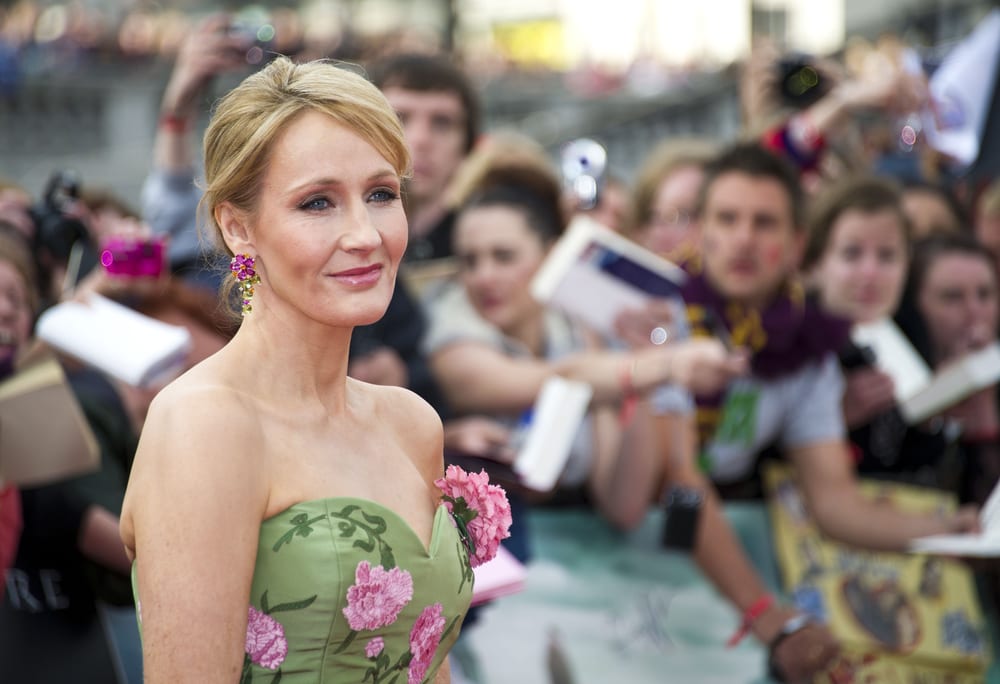
The successful Harry Potter series keeps on descending into the abyss of woke condemnation.
Its author, J. K. Rowling has been the subject of several controversies around her alleged ‘transphobia.’ It all started in June 2020 with her ironic tweet—about the fashion of saying “people who menstruate” instead of “woman.”
‘People who menstruate.’ I’m sure there used to be a word for those people. Someone help me out. Wumben? Wimpund? Woomud?
— J.K. Rowling (@jk_rowling) June 6, 2020
Opinion: Creating a more equal post-COVID-19 world for people who menstruate https://t.co/cVpZxG7gaA
This provoked furious reactions from activists who argued that transgender men can have periods, but transgender women cannot.
The controversy mushroomed as Rowling persisted in her statements by reaffirming the existence of “sex” as opposed to “gender”—an indispensable condition for sexual attractiveness.
If sex isn’t real, there’s no same-sex attraction. If sex isn’t real, the lived reality of women globally is erased. I know and love trans people, but erasing the concept of sex removes the ability of many to meaningfully discuss their lives. It isn’t hate to speak the truth.
— J.K. Rowling (@jk_rowling) June 6, 2020
The polemic continued in December 2020 when she retweeted a Times article that indicated that British police could register rape suspects as women if they identified themselves as such.
War is Peace.
— J.K. Rowling (@jk_rowling) December 12, 2021
Freedom is Slavery.
Ignorance is Strength.
The Penised Individual Who Raped You Is a Woman.https://t.co/SyxFnnboM1
The accusations of ‘transphobia’ led to her not being invited to take part in the filming of a special episode to celebrate the 20th anniversary of the Harry Potter series, which was broadcast on the HBO Max channel. Quidditch leagues—a sport inspired by the game played in Rowling’s books— have announced they plan to change the name of the sport to “distance themselves” from Rowling. And a few days ago, an English school that had named one of its buildings “J. K. Rowling” in honor of the saga’s creator renamed it due to her “opinions on trans people.”
Daniel Radcliffe, the leading actor of the series, was keen to disassociate himself from the author and to condemn her comments. Warner Bros., the studio behind the movie franchise, made a statement defending its ‘woke credentials’: “Warner Bros.’ position on inclusiveness is well established, and fostering a diverse and inclusive culture has never been more important to our company and to our audiences around the world.” Warner Bros. has clearly not split from Rowling however, in view of the release of the Fantastic Beasts spinoff film series.
But yet another, new, attack comes to weaken the fantasy series. In December, the American humourist Jon Stewart accused Rowling and Warner Bros. of having fed anti-Semitic clichés by representing the goblins in charge of the wizarding bank, the Gringotts Bank, with the features of the anti-Semitic caricatures of the 1900s. Small men with big hooked noses, rich and unpleasant.
To support his point, Stewart contrasted Harry Potter’s goblins with illustrations from a 1903 edition of The Protocols of the Elders of Zion, a popular anti-Semitic pamphlet of the time, on his TV program “The Problem with Jon Stewart.” The comparison was, according to him, blatant, obvious. Jon Stewart was indignant and surprised that the public did not react more strongly to this scandal.
Jon Stewart’s analysis is not unanimous, however. The Campaign Against Antisemitism jumped in with a statement in support of Rowling, noting that she had always been an ardent defender of the Jewish community, and that the representation of the goblins in the film was in line with the Western tradition at large.
Our statement on suggestions that JK Rowling's portrayal of the goblins in the Harry Potter series is antisemitic pic.twitter.com/v9twpzkxM4
— Campaign Against Antisemitism (@antisemitism) January 5, 2022
Stewart backtracked on January 5th, clearly under pressure from the backlash his comments prompted. He posted a video in which he said his comments were just jokes among friends. “Having a laugh, enjoying ourselves about Harry Potter and my experience watching for the first time in the theatre as a Jewish guy and how some tropes are so embedded in society that they’re basically invisible even in a considered process like movie-making. This morning I wake up, it’s trending on Twitter, and here’s the headline … ‘Jon Stewart accuses JK Rowling of antisemitism.’ … I do not think JK Rowling is antisemitic. I do not think the Harry Potter movies are antisemitic.”
At the same time, the actress Emma Watson, interpreter of the heroine Hermione Granger, was also accused of anti-Semitism for posting on her Instagram account on January 3rd a photo of a pro-Palestinian rally, with a caption calling for solidarity. This publication triggered the anger of Danny Danon, the Israeli ambassador to the United Nations.
Once lauded as the exemplar of children’s literature and cinema, the Harry Potter series is now the subject of repeated condemnations that tarnish its image. And its author J. K. Rowling, after having been universally praised as the model of an independent, creative, and courageous woman and spokeswoman for mainstream causes, is being dragged by activists into a stunning and irrational descent into hell.
